Issue 87 : 8 August 2021
Talofa Lava, Kia Orana, Malo E Leilei, Tena Koutou, Hello ...
... and welcome to the latest issue of “For The Love Of The Game”, the official e-zine of the New Zealand Amateur Sport Association Inc., founded in 2017.
If you have any feedback on this issue, ideas for future articles, or would like to contact the Editor, please click here. And, you are invited to forward the e-zine to others you know, who may be interested in reading it. An archive of earlier editions of the e-zine can be found here. For those who follow Twitter, you can also follow the Association, @AmateurSportNZ.
If you are interested in applying for membership of the Association, please click here.
Association Presents Oral Submission To Select Committee ...
On Thursday last week, the Association’s Patron, Vice-President and Chairman presented an oral submission to Parliament’s Economic Development, Science and Innovation Select Committee, requesting that the Incorporated Societies Bill be referred back to the community for further consultation given its unintended consequences for amateur sport in New Zealand.
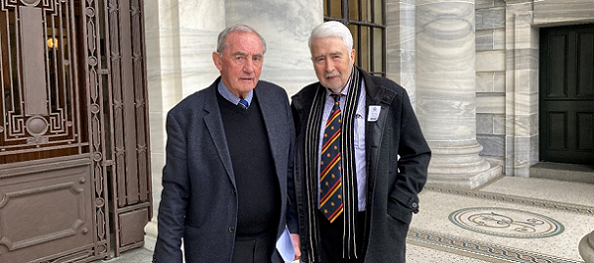
(Andy Leslie MNZM, Association Patron and John Morrison MNZM, Association Vice-President)
In total, 23 submissions on the Bill were heard by the Select Committee on Thursday. In response to the Association’s oral submission, Select Committee Member Todd McClay (National, Rotorua) asked how the current Bill could better meet the needs of community sport entities. In response, Association Chairman Gordon Noble-Campbell said that the regulatory burden for incorporated sports bodies must be reduced not increased by the Bill, with the seven recommendations contained in the Association’s written submission indicating how this could be achieved within the current draft. The full transcript of the Association’s oral submission to the Select Committee can be read by clicking here.
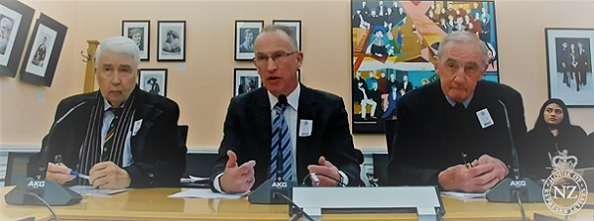
(The Association recommends that the Bill be sent back for further community consultation)
Viewpoint : “Why The Moral Climate Of Sport Clubs Matters” ...
While sports (and clubs which provide them) are generally believed to promote positive social values beneficial in building healthy communities, such as sportsmanship and fair play, incidents of anti-social behaviour both on and off the playing field are not that uncommon and in recent months have attracted headlines in New Zealand’s media.

(Sport clubs provide an insight to the values of the communities they represent)
As distinct social and organisational entities, the responsibility of sport clubs in demonstrating values representative of their community cannot be underestimated. In the same way as (is sometimes said) “the eyes are the window to the soul”, sport clubs are perhaps “a window to the values of the communities they represent.” The behaviour associated with a club will eventually come to define it. You can read more here.
It’s Not "A Badge Of Honour", It’s "A Silent Epidemic" ...
Dr. Doug King, a clinical nurse specialist and concussion expert based at Hutt Valley DHB, has spent over 20 years researching sports-related concussion. He has recently completed his latest PhD research on injury epidemiology in women's Rugby Union in New Zealand, where he found that females take longer to recover from concussion than males, and experience more concussion symptoms over a longer duration. He's found that on average, females take 30 days longer to recover, whereas males recover sooner.
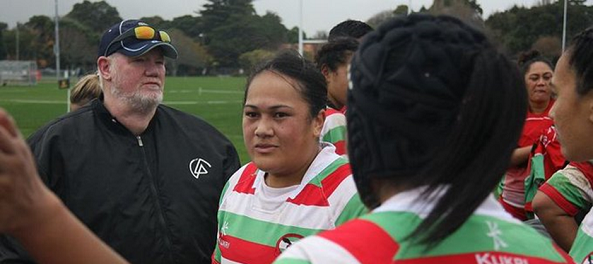
(Dr. Doug King’s research found females take longer to recover from sport concussions)
King says that concussion and traumatic brain injury is “not a badge of honour. It’s a silent epidemic and people need to be more aware of it.” The impact of a concussion on the individual can vary from a mild physical or cognitive disability through to a pervasive set of physical, behavioural, emotional, and cognitive deficits that can disrupt normal functioning throughout their lifetime. Dr. King observes that the impact of head injury is accumulative and as a result of this study of women’s rugby, there is a need to change the way in which concussion is viewed and treated for female players. You can read Dr. King’s latest research paper, by clicking here.
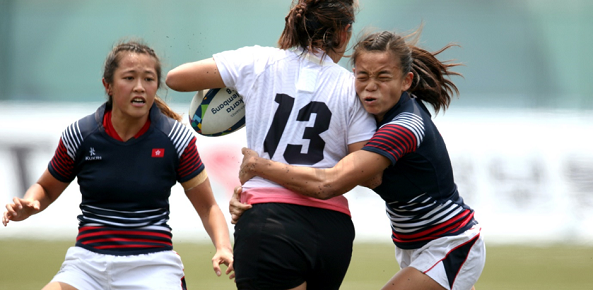
(Concussion is a “silent epidemic”, which can have lifetime effects)
National Sport Club Survey Launches On Thursday, 19 August ...
The National Sport Club Survey (NSCS) is an important tool in New Zealand’s collective, ongoing efforts to ensure that community sport remains strong and resilient. It is run through a partnership between the Association and AUT SPRINZ. Unlike other surveys, the NSCS focuses on the Sport Club as the unit of analysis and therefore complements many other sport sector data collections focused on individual New Zealanders. Insights are shared widely across the sector with all clubs and sport organisations.
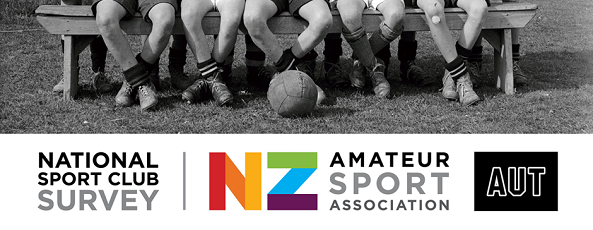
The questions in the 2021 NSCS are about 70% different from those in 2020. The questions that are the same are part of an effort to track trends over time on important metrics like financial performance and membership. If you’ve not received a preliminary invitation to participate in the 2021 survey, please contact support@asa.org.nz to add your club to the survey database.
“Healthy Sporting Club” Grants Offered In Australia ...
The Australian government is offering up to A$4,000 in funding to community sport clubs competing in recognised sporting competitions to: increase healthy food and drink options at club-run canteens or kiosks; reduce the promotion of unhealthy food and drink choices; reduce the promotion of unhealthy messages (or brands) and improve club members’ knowledge of the importance of healthy eating. Western Australia Health Minister Roger Cook notes that “sport clubs already provide pathways to healthy lifestyles through physical activity and the Healthy Sporting Club Programme aims to inspire clubs to promote healthy eating habits.”

This initiative is another example of progressive political thinking in Australia using sport clubs as organisations which can promote positive health outcomes for local communities. A similar initiative focusing on New Zealand sport clubs could provide significant benefits for sportspeople (and the clubs that provide sport) throughout this country.

A Club Man Speaks ...
Fred Lister is a man who knows a thing or two about the game of Rugby Union. At the age of 86, he’s seen more of the game than many alive today, but in the past two to three years he’s become fed-up with the direction of the sport he’s loved all his life and he just can’t be bothered following it like he used to.
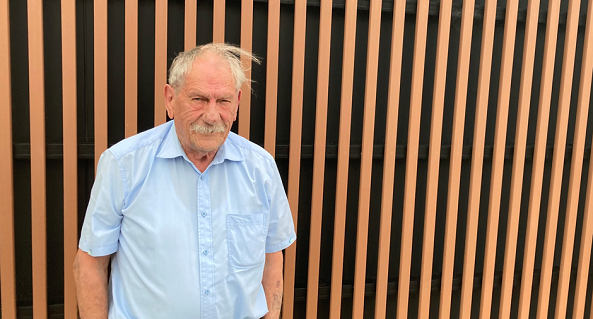
(Fred Lister from New Plymouth played for Tukapa Rugby Football Club for 31 years)
The Lister family have been associated with New Plymouth’s Tukapa Rugby Football Club for 110 years, with George Lister first playing for the club’s junior side in 1911. Fred first played for Tukapa in 1947 at the age of 12. He played continuously for the club for 31 years until he was 43. In the era when "size" was not as advantageous as "athleticism", Fred variously played as a prop, fullback and flanker, representing Taranaki in junior representative teams.
When asked why he has lost interest in the sport that has (in many ways) defined his life, Fred says the game has become “15 man league”, the rules and referees have taken the spontaneity out of the spectacle and it’s now just all about “the All Blacks”. As for Tukapa, the club is still going strong, but these days Fred is at home from the club by 6.00pm on a Saturday evening. “It’s not worth staying to watch the games on TV”, he says.
Squash New Zealand Partners With Mental Health Foundation ...
Saturday, 9 October is the 20th anniversary of “World Squash Day” and Squash New Zealand has agreed to work with the New Zealand Mental Health Foundation as the charity it will support through fund-raising as part of this global celebration of the game of squash.
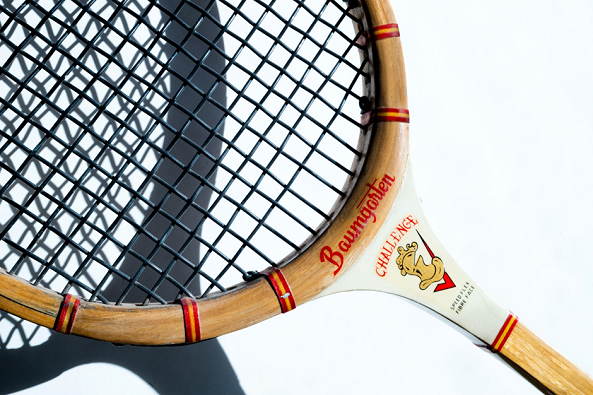
The game of squash emerged in the mid-1930’s in New Zealand, popularised by the Duke of Gloucester’s (an advocate of the game) visit to New Zealand in 1935. Squash New Zealand Chief Executive Martin Dowson said both Squash New Zealand and the Mental Health Foundation “both support healthy lifestyles, and we look forward to a meaningful relationship that provides good health outcomes for New Zealanders. The focus is to celebrate the value of squash for the community and supporting mental health at the same time."
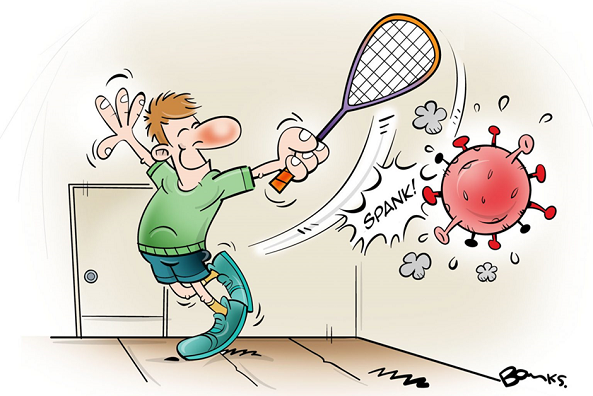
From The Archives ...
AUCKLAND STAR, VOLUME LXXII, ISSUE 33, 8 FEBRUARY 1941, PAGE 5 (SUPPLEMENT)
“Violet Walrond and Gwitha Shand were contemporaries whose rich ability was reflected by their continually thrilling duels. Together they gave women’s swimming so strong an impetus that they well and truly established its prestige in the sporting life of the Dominion, and inspired many girls to enter competition. Prior to their race at Auckland in 1920, they had already become keen rivals the previous year in intermediate events. Here was a slip of a girl, 11 years of age, national open champion. Little wonder her achievements caused a furore. She and Miss Shand were matched shortly afterwards in 50 yards and 100 yards trials at Wellington. Miss Walrond again won. Her reward was a trip to the Olympic Games in Antwerp the same year. She was fifth in the final of the 100 metres.”
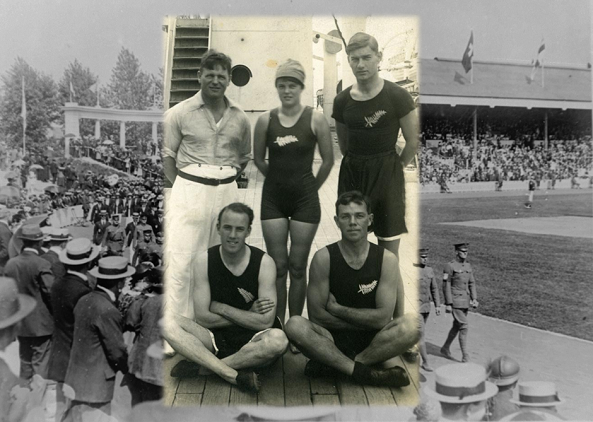
(Cecil and Violet Walrond, back left, with the other members of NZ’s 1920 Olympic team)
Violet Ethel Mary Walrond was born on 27 February 1905, the eldest child of Cecil Bruce and Ethel Coralia Walrond. She was the eldest of their three children. The story of Violet as New Zealand’s first female Olympic Games competitor is well documented, but less well documented is the influence of her father Cecil in inspiring her sporting achievements.
Cecil Walrond was from Ponsonby in Auckland. Following his marriage to Ethel Swinton, the family settled in Herne Bay. Cecil was a member of the Ponsonby Swimming Club and a renowned swimmer from the time he was a child. Cecil swam competitively over 50 and 220 yards. He was reported to have saved at least five lives, for which he was nominated for a Royal Humane Society award in 1908. He subsequently received a Certificate of Merit for "having saved 11 lives from drowning at various times". He became a Committee Member and Vice President of the Akarana Ladies’ Swimming Club to which Violet belonged. As Violet was only 15 years of age when selected for New Zealand’s first Olympic team, Cecil accompanied her as chaperone and as honorary trainer of the entire New Zealand team. Following her sporting career, Violet married Harold Robb in 1933. She died in 1996, in her 92nd year.
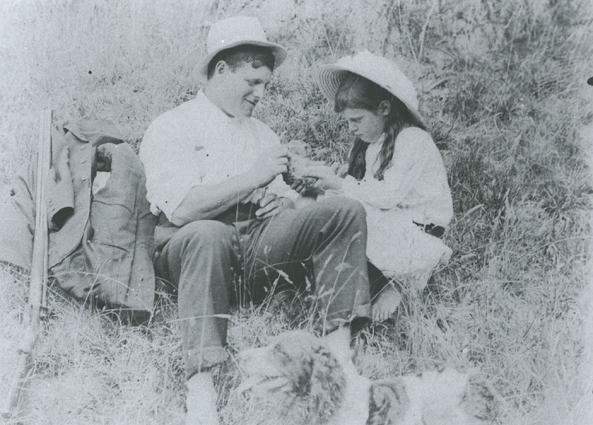
(A portrait of father and daughter – Cecil and Violet Walrond)
The Final Word ...
“The most important thing in the Olympic Games is not winning, but taking part.”
(Pierre de Coubertin)